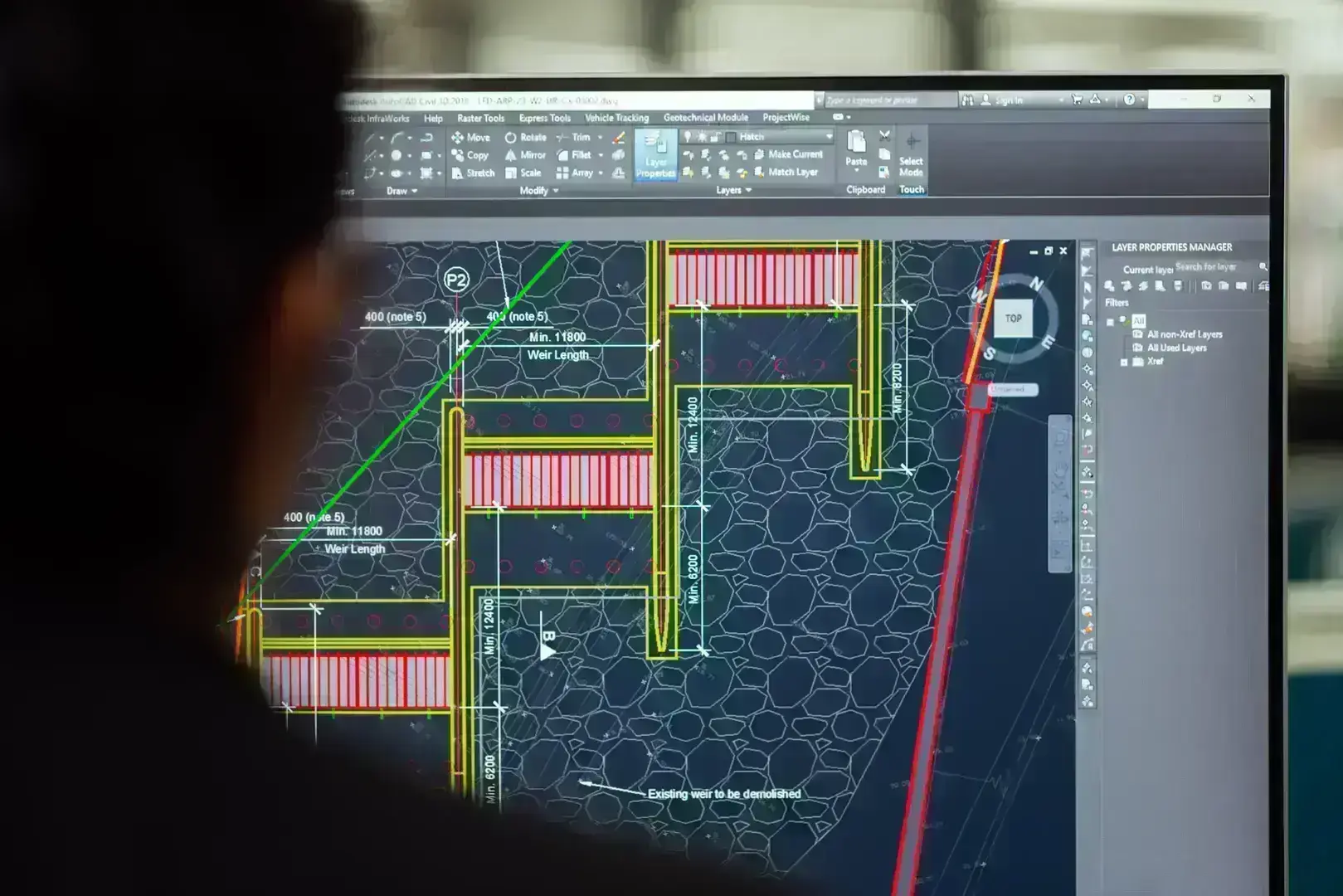
Eliminate the inefficient, implement the best
Only 5.5% of construction professionals fully integrate their software, hindering productivity. Embracing bespoke, user-friendly digital solutions can significantly enhance efficiency and collaboration.
As it stands, only 5.5% of construction professionals surveyed have full integration across all their software applications, 30% have no software integration whatsoever, and 36% have only 1 or 2 applications integrated.
Construction is one of the global economy’s largest industries. Global Construction 2030 has forecast that the volume of construction output will grow by 85% to $15.5 trillion worldwide by 2030. However, the construction industry continues to lag behind other industries when it comes to improving its productivity.
Whilst industries such as retail and manufacturing have drastically improved productivity and transformed their systems through both automation and digitalisation, the construction industry’s productivity has yet to improve. The construction sector remains the least productive industry in the UK economy, at more than 20 percentage points below the average output per hour for the whole economy in 2017. Within the construction industry, a large number of companies still use multiple different systems and outdated methods of communication, which can lead to projects suffering as a result.
Challenges to handle
Construction and engineering firms often face a diverse set of challenges, which can include:
The complicated and time-consuming process of securing suitable suppliers for a project The sharing and management of a large amount of documentation during complex project management processes Collaboration with project stakeholders, which involves continuous communication and requires all parties to align on their views A vast amount of administrative tasks, such as last-minute changes to plans and specifications To this day, the methods used to collect and communicate data and information in the construction industry remain separate and non-interactive. This can often lead to more significant challenges within project management and even cause project delays and unsatisfied customers.
Additionally, many firms are still using a combination of software alongside conventional spreadsheets. This duplication of data can be both inefficient and costly. Often, companies continue to use spreadsheets either to transfer data between multiple outdated software applications or due to an inability to input specific data into the existing software application.
Follow the light in the tunnel
Construction companies should seek to implement bespoke software that follows the user’s journey while performing daily tasks, allowing them to learn and adopt the system quickly, collaborate more effectively and eliminate inefficient duplication.
The demand for construction management software will continue to increase as it becomes much more widely adopted. The shift from manual processes to digital and automated solutions can happen at a much greater scale with the availability of software systems that are simple to use, provide seamless collaboration and cater to a multitude of different projects. At HeadChannel, digitalisation and integration are at the forefront of what we do; with 15+ years of experience in this area, we are experts at transforming outdated systems and creating bespoke software solutions.

Contact us.
If you need a partner in software development, we're here to help you.
We will respond to your enquiry immediately.